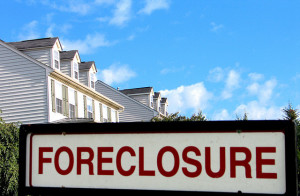The cruelest trick played on homeowners trying to modify their mortgage was dual tracking.
One side of the bank assured the borrower that their loan modification application was being considered and they didn’t need to worry.
All the while, the other side of the bank was conducting a foreclosure sale.
The borrower wakes up to find that they are no longer homeowners.
No more.
New federal rules prohibit dual tracking
Mortgage lenders are now prohibited by federal law from conducting a foreclosure while a mortgage modification application is under consideration.
Regulation X – Real Estate Settlement Procedures Act
Before a foreclosure is begun, the lender or their servicer must take steps to let the borrower know what options exist to keep the house. The mandated timeline creates a four month interval between delinquency and starting the foreclosure in which alternatives can be explored.
Live contact with borrower
Mortgage servicers must attempt to make live contact with borrowers who become delinquent within 36 days of the delinquency. A voicemail message doesn’t cut it. Reg. X §1024.39
The servicer must describe the kinds of loss mitigation options that are available and they must establish a single point of contact for the borrower with the servicer. Reg. X § 1024.40
No foreclosure can be instituted until 120 days have passed from the first delinquency. More importantly, if a complete loan modification application has been submitted to the the servicer by the 120 day point, no foreclosure can be begun. Reg. X §1024.41
Last minute help
If the borrower misses the 120 day deadline for submitting a loan modification application, there’s still protection in the new rules.
If a loan mod application is made more than 37 days before the foreclosure sale, the servicer cannot conduct a foreclosure sale until it issues a decision on the application.
The new rules deal with a myriad of variations on these timelines. The theme in the rules is consistent: federal law requires a decision on a loan modification application before the foreclosure train chugs down that track.
If the servicer breaks the rules
The new rules have teeth.
Borrowers who believe their servicer has failed to follow the rules can sue the servicer. If you can prove your case, you can collect your actual damages as a result of the violation; your costs of suit; and your attorneys’ fees.
These regulations implement provisions of the Dodd Frank legislation; they became effective January 10, 2014.
Another arrow in homeowner’s quiver
These rules do not preempt other rights that homeowner’s have in this arena that give them greater rights.
Like any new law, we will have to see how they work over time.
While the rules don’t require servicers to modify loans, they do require servicers to refrain from foreclosing while a loan modification application is pending.
Image courtesy flickr and taberandrew.






